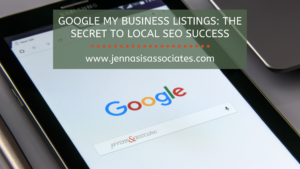Compared to today’s rapidly changing landscape, the first 20 years of email marketing that began in the mid-90s moved at a glacial pace, can be neatly summed up in this haiku:
Emails, just desktop
First text, then images came
Next, phone—same order
You’re probably more familiar with the hallmark brands that were the most visible drivers of the innovation. Plain text AOL emails gave way to Hotmail’s that contained images (HTML), which allowed marketers to showcase products and lifestyle. Those images moved from the desktop to your pocket, first with plain text and Blackberry, then images and text with the iPhone. And, phew, here we are today!
In the last few years, email marketing strategies have become more sophisticated—driven largely by the way Google responds to its users’ experience. Savvy business owners are using email marketing as an effective tool at their disposal.
As social media explodes in popularity and use, let’s not forget the value and reach email marketing provides.
1) Emails are still going mobile
People use their phones,
Waiting for the next email.
Format correctly!
This isn’t the shock of the century—people still use their phones to read email. A 2015 Pew Research study showed that 88% of people checked their email at least once in the one-week survey period, and another recent Pew Research study showed that over 50% of people regularly check their email via their smartphone or tablet.
According to Hubspot, 69% of smartphone users delete emails that aren’t formatted correctly for their phone.
What does this mean for you? Email still matters—it’s cheap, too!—and it’s crucial you take the time to optimize your email for both desktop and mobile platforms or else it’s going to end up in your reader’s trash.
2) Be a resource
Capture attention:
Keep your message short and sweet
Don’t just sell…inform!
With attention spans at seven seconds, humans spend little to no time reading emails. Inc.com recommends keeping your emails short and to the point, and giving your readers little teases about your business’ products and services.
To that end, email newsletters and sales pitch emails are sooo 1990s. Instead of thinking of how you can cram your entire product offerings into one power packed email, take a minute, and ask yourself if you’re being a valuable resource to your customer.
Concise, free tips and info that people actually want will help build your readership. Once they’re engaged with your brand, you stand a better chance of closing a sale.
3) Break it down
Don’t blast everyone
Break it down by audience
You’ll have more success
Simply put, know your audience.
Segmentation is an email marketer’s best friend and the folks at MailChimp agree: you get better open and click rates by a little slicing and dicing of your audience.
You can do this a number of ways if you have good data. What if you don’t? Send a survey out to get some data back!
4) Analyze this
Engaged? Unsubscribed?
Analytics are your friend,
Look at the data.
Whatever service you use—i.e. Constant Contact, MailChimp, Vertical Response—each has tools within them to see if people are engaging with your messaging.
Your email copy may have been Shakespearean, but if no one clicks open the video you want them to see, that may tell you something. Keeping track of data like this will help you more nimbly pivot to avoid continuing the mistakes in your email marketing strategy, and hit on successes in reaching your audience.
If you’re looking to rekindle your friendship with email, look no further than our team at Jennasis. Contact us and we’ll help you become best buds again.






